Sanctions affect the economies of both sanctioned and sanctioning states. Stelios Sakkas and Konstantinos Mavrigiannakis present new research on the impact of EU sanctions against Russia on the economy of Cyprus.
Russia’s invasion of Ukraine in February 2022 increased global economic uncertainty at a time when economies were just recovering from the COVID-19 pandemic. Most EU countries were primarily affected by a sharp rise in energy prices, which spiked following the invasion.
In response, the EU adopted a set of economic sanctions aimed at weakening Russia’s economy by cutting access to key technologies and markets. Although recent research indicates that these sanctions have had minimal to negligible economic effects – largely due to reduced gas consumption – they have reignited debate over the broader economic impact on both sanctioned and sanctioning nations, as well as their effectiveness in addressing military conflicts and other foreign policy issues.
Heterogeneous impacts
On the policy front, recent studies suggest sanctions are losing effectiveness as a foreign policy tool. The EU also faces growing scepticism about their impact and “sanctions fatigue”, where the burden of enforcement is uneven among member states.
Empirical evidence highlights the importance of geographic and sociocultural factors in how sanctions affect welfare, particularly for countries that neighbour Russia, have historical ties to Russia or have large Russian-speaking populations. In a recent study, we analysed these issues by focusing on the impact of EU sanctions on Cyprus, which serves as an illustrative case for several reasons.
First, Cyprus has had strong economic ties with Russia since the early 2000s and maintains a strong Russian speaking community on the island. Although these ties weakened after the 2010 financial crisis, significant links remained, especially in services trade, including tourism and professional services, which accounted for over 25% of Cyprus’ total service exports – the highest among EU countries.
Russia has also been a major source of foreign direct investment (FDI), directly impacting Cyprus’ balance of payments. However, according to the most recent statistics, by the end of 2022, services exports to Russia were nearly halved, Russian tourist arrivals dropped to zero, and FDI from Russia sharply declined, leaving Cyprus economically vulnerable to the war’s fallout.
Second, Cyprus remains in a vulnerable economic position according to several macroeconomic indicators. To some extent, this is due to lingering effects from the previous decade’s financial crisis. However, measures such as the country’s current account balance, net international investment position, private sector debt and share of nonperforming loans were all below the thresholds set by the Macroeconomic Imbalances Procedure Scoreboard of the European Commission at the time of our analysis.
Financial frictions
It is important to understand how the two points mentioned above interact. Ongoing economic and geopolitical shocks, such as EU sanctions against Russia and conflicts in the Middle East, combined with global monetary tightening since 2022, may have led to stricter external borrowing conditions. In this context, countries like Cyprus, which face significant external macroeconomic imbalances, could be more vulnerable to such trade disruptions.
When a small open economy faces increased financial constraints, borrowing becomes tighter, and domestic agents can only borrow a fraction of their assets from international markets. Large negative shocks, such as trade restrictions, can intensify the decline in aggregate demand since agents are unable to smooth consumption. Additionally, FDI shocks can impact borrowing capacity, as an increase (or decrease) in foreign capital eases (or tightens) the economy’s borrowing constraints. Under these conditions, FDI shocks can further amplify the overall economic impact.
A model-based assessment
To corroborate the above, we ran two sets of simulation experiments. The first served as a benchmark and the second as an extension in which we took into account the importance of financial frictions. In that setup, we examined the macroeconomic impact on the economy in Cyprus as a result of indirect effects from the war in Ukraine, that is a rise in imported goods inflation and a direct effect from the enforcement of EU sanctions against Russia.
In the benchmark simulation, the results indicated that trade sanctions slice output by 1.24% in the short term (five years post invasion). This is mostly driven by the temporary decrease in exported services to Russia and inflationary pressures. Foreign direct investment reductions play the least important role in the benchmark scenario, in quantitative terms.
In the extended setup, the results differed considerably in quantitative terms. The total impact on output was more than doubled, reaching a five-year average loss of 3.13%, while the negative effects from the decrease in inward FDI from Russia were roughly seven times higher compared to the baseline model. Evidently, financial constraints amplify the effects of sanctions.
To shed more light on how tightening financial conditions could exacerbate economic vulnerability, in a counterfactual experiment we found that if Cyprus had a lower initial indebtedness this would lead to milder recessionary effects. The reduction in aggregate output was about 12% smaller compared to higher debt scenarios (2.8% instead of 3.13%). This is due to lower interest rates and increased capital inflow, mitigating the overall output decline.
Takeaways and policy recommendations
Our analysis reveals significant short-term negative impacts, with Cyprus being disproportionately affected compared to other EU states due to its strong trade ties with Russia, especially in services exports. The overall impact depends on the duration of sanctions and enforcement practices. However, countries like Cyprus, already vulnerable in their external position, face greater risks from ongoing EU sanctions.
However, this situation presents an opportunity for Cyprus to shift to a new growth model. Reorienting service exports to other markets and leveraging its geographical location and expertise in tourism and finance could strengthen its economy. Reducing public and private debt would help buffer against future shocks while burden-sharing policies like fiscal transfers, along with timely investments from the Recovery and Resilience Plan and EU structural funds, could help offset the costs of sanctions.
For more information, see the authors’ accompanying GreeSE paper published by LSE’s Hellenic Observatory and their accompanying paper in Open Economies Review.
Note: The findings presented in this article stem from a joint project between the Hellenic Observatory of the London School of Economics and the Economics Research Centre of the University of Cyprus titled “Cyprus and EU Sanctions to Russia: Macroeconomic impacts and policies for a sustained recovery” and funded by the A.G. Leventis Foundation through the A.G. Leventis Research Innovation Programme on Cyprus. This article gives the views of the authors, not the position of EUROPP – European Politics and Policy or the London School of Economics. Featured image credit: rarrarorro / Shutterstock.com


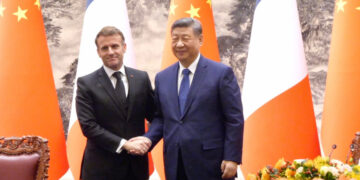
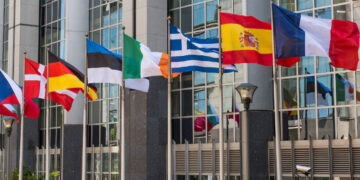





























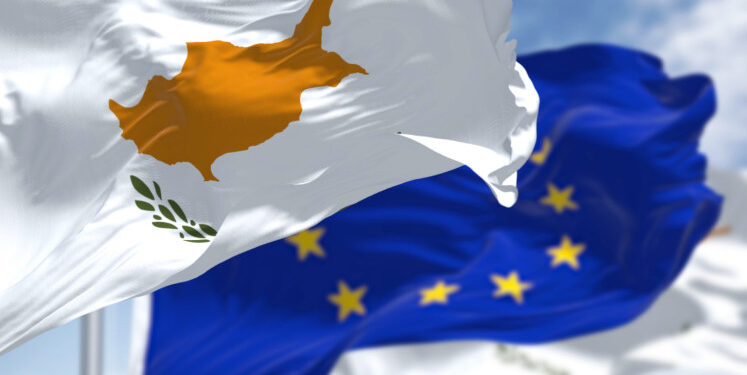

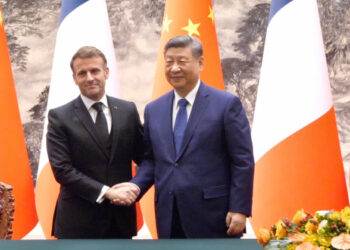
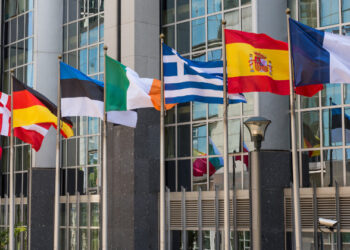






Discussion about this post